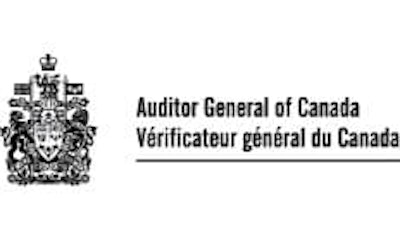
Ottawa, Ontario — December 15, 2016 — The 2016 Fall Reports of the Auditor General of Canada have been released, and the news is not good for Transport Canada. The Auditor General audits federal government departments and agencies, most Crown corporations and many other federal organizations.
A statement from AIA Canada notes that the audit found that Transport Canada did not maintain motor vehicle safety regulations in a timely and proactive manner; had incomplete collision and injury data, and could not demonstrate how research informed safety regulations; and Transport Canada had limited knowledge of manufacturer investigations related to critical safety issues.
The Auditor General’s audit notes that Transport Canada often follows the lead of the US regarding safety standards.
“It generally waited for the United States to change its motor vehicle safety standards before modifying Canadian standards. The Department often limited consultations to the automotive industry. We also found that it did not have complete collision and injury data to inform its decisions. We could not always determine how the Department used evidence and research to develop or amend safety standards. Transport Canada did not plan or fund its research and regulatory activities for the longer term,” according to the audit.
This is important, according to the audit, as “Transport Canada needs to integrate emerging safety risks and new technologies into the regulatory framework in a timely way so that Canadians are safe on our roads. Canadians must have access to the safest vehicles possible. Our regulatory framework should not prevent Canadians from accessing new safety features that will keep them safer on our roadways.”
The audit also found that “Transport Canada did not maintain an up-to-date regulatory framework for passenger vehicle safety. There were lengthy delays, sometimes of more than 10 years, from the time work began on an issue to the Department’s implementation of new standards or changes to existing ones. We found that Transport Canada had discussions with manufacturers prior to announcing its intention to implement or modify a particular regulation in the Canada Gazette, Part I. These consultations often went beyond technical feasibility issues, which contributed to these delays. Finally, we found that Transport Canada did not systematically consult with other important stakeholders, such as vehicle parts and equipment suppliers, insurance companies, medical associations, and police.”
Going forward, Transport Canada has agreed to specifically invite comments for expanded regulatory amendments, actively seek input from expert stakeholders and publish a summary of comments received by stakeholders during its pre-consultation period.
The audit also found that Transport Canada’s national database of collision information did not include complete Canadian data, and that the Department did not obtain other relevant information, such as insurance industry statistics.
“While the Department stated that it used evidence to develop regulations, we found that it was not always clear if it used Transport Canada evidence and international research to make regulatory amendments. We also found that the Department did not use its research on rear-seat occupants to develop a standard that would keep some passengers safer, despite conducting research on the issue for more than 15 years,” according to the report.
The audit found that Transport Canada adequately assessed complaints from the public to identify vehicle safety defects, but didn’t request information about critical safety issues that manufacturers were investigating, or the manufacturers’ internal processes to identify safety issues.
“We found that Transport Canada requested information from manufacturers on alleged safety defects, but that manufacturers provided only a fraction of the information they possessed to Transport Canada,” according to the report. The report also found manufacturers frequently investigated critical safety issues without informing Transport Canada, and that there was no legal requirement for manufacturers to provide information. Transport Canada has, however, already proposed changes to legislation to increase reporting requirements for manufacturers.





















